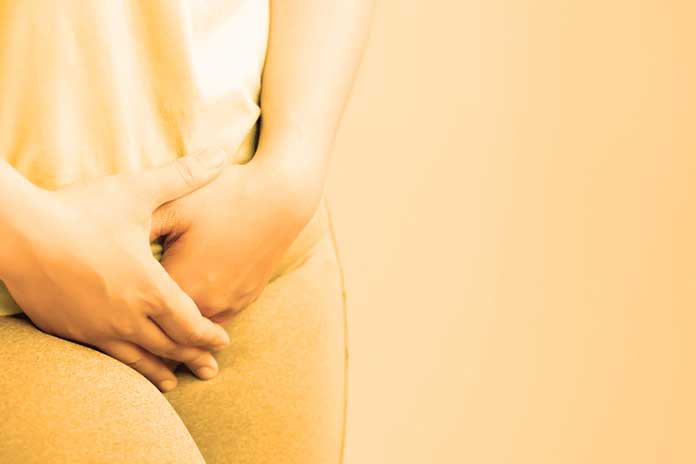You’ve heard of it many times but only decided to delve into it when you started feeling the first annoyances, didn’t you? Let’s clarify. What is Cystitis? It is a urinary tract infection known as an ‘uncomplicated lower urinary tract infection’ (UTI). Inflammation of the bladder mucosa mainly affects women because they have shorter urethra. This favors the entry of bacterial agents that reach the bladder, causing irritation and pain. Men, on the other hand, experience cystitis more rarely and around the age of 60. It usually appears in males due to narrowing the urethral canal, previous sexual illnesses, prostate problems, and bladder stones. Now let’s get back to the point that interests us.
What Are The Causes Of Cystitis?
Let’s try to answer the critical question: why does cystitis occur? How do you get cystitis? What are the triggers of inflammation? The primary origin is due to the formation of bacteria. But where do these bacteria come from? Especially from the intestines. Pathogens do not remain isolated in the rectum but attack the perineum (the part between the vagina and anus). From the urethra, they arrive in the bladder, attacking the internal mucosa and causing inflammation of the lower urinary tract.
The most common consequence? The continuous urge to pee with poor results and intense burning. What are the bacteria responsible for cystitis? Escherichia Coli initiates 85% of cystitis. Then there are Staphylococcus saprophyticus, responsible for about 10% of cystitis in young women, Klebsiella, and Proteus, which trigger the remaining 5% of inflammation. Other causes of cystitis? Sexual intercourse encourages the passage of bacteria. In this case, we speak of “honeymoon” cystitis because the irritation occurs after repeated physical intercourse with your partner.
Urinalysis and an antibiogram allow us to establish the nature of the infection and the subsequent prescription of an antibiotic. Among the triggering factors of cystitis, there is also constipation which favors the spread of Escherichia Coli, genetic predisposition, the use of internal absorbents and antimicrobials (which create an imbalance in the vaginal bacterial flora), an incorrect diet based on red meat, sugars, and dairy products. Signs of cystitis include incomplete bladder emptying and urinary stasis.
Also Read: Why Chronic Low Back Pain Is Seen Alongside Anxiety and Depression
How To Recognize The Symptoms Of Cystitis?
Now that you understand why cystitis occurs, you must recognize the symptoms. The alarm bell is the frequent need to urinate even when the bladder is incomplete. Burning when going to the bathroom is also one of the discriminating signs of infection and the difficulty of urinating. Other worrying signs: discomfort or pain during sexual activity, general feeling of malaise, presence of blood and pus in the urine, discomfort in the lower abdomen, and cloudy and foul-smelling urine.
How Is Cystitis Diagnosed?
Urinalysis is essential. It allows recognition of the presence of bacteria, red and white blood cells, and nitrites. At the same time, a urine culture with an antibiogram discovers the agent that caused the infection and the bacterial load. The latter should not be underestimated even if it is smaller than the standard threshold of 100,000 colonies/m in young women. And if you are faced with recurring cystitis, what to do? In this situation, it is advisable to investigate and perform an ultrasound and cystoscopy.
How To Cure Cystitis
The most effective solution to eliminating pathogens is the doctor’s prescribed antibiotics. The most suitable are those based on levofloxacin, ciprofloxacin, norfloxacin, fleroxacin, and fosfomycin trometamol salt. The latter is the most used and known as Monuril. These cystitis medications also respect the vaginal bacterial flora and eradicate the infection in a few days.
Treating cystitis correctly is very important; otherwise, the infection risks invading the kidneys. The consequences are unpleasant: the intimate burning worsens, and a high fever can take over. If you’re wondering, the answer is no: there are no immediate remedies for cystitis.
Supplements Against Cystitis
Instead, you can fight cystitis with natural remedies. Good allies to hinder inflammation are cranberry and bearberry. Cranberry slows down the action of Escherichia Coli, and you can buy it as fresh juice or take it as a food supplement by consulting your trusted doctor or pharmacist to find the correct dosage. Bearberry is also helpful in case of urinary tract infection: this fruit is an excellent antiseptic. Speaking of supplements against cystitis, our catalog shows Maicisity in tablets based on cranberry, bearberry, grapefruit seeds, and D-mannose. The product is ideal for recurring irritations and has a preventive effect.
What To Eat With Cystitis
The cure goes through a healthy diet. What to eat with cystitis? To keep the intestinal flora unchanged, consuming foods rich in fibers that regulate the intestine’s functioning is good, while fruit and vegetables with vitamin C implement a protective action against bacteria. What about the foods to avoid cystitis? Especially sugar and alcohol, which irritate the bladder.
The Importance Of Preventing Cystitis
Preventing cystitis guarantees a better quality of life. There are some precautions you can put into practice to avoid the onset of this inflammation. Let’s see them:
- Drink a lot of water.
- Wear cotton clothing.
- Take care of intimate hygiene.
- Empty the bladder after sexual intercourse.
- Do not hold urine for a long time.
- Do not practice traumatic sports for the bladder. Better to avoid cycling, motorcycling, and horse riding.
Finally, to prevent cystitis, you can take xyloglucan, extracted from Tamarind seeds which stratify on the intestinal walls and protects the mucosa, helping this part of the body to resist the pathogenic attacks responsible for inflammation. This pharmacological element can also be taken in all phases of cystitis. First, it minimizes irritation, relieves the symptoms, and helps the antibiotic after it prevents recurrences. The xyloglucan is accompanied by Hibiscus sabdariffa and Propolis which act on the bladder, limiting the growth of bacteria.
Also Read: How Much Water Should You Drink In Winter?


